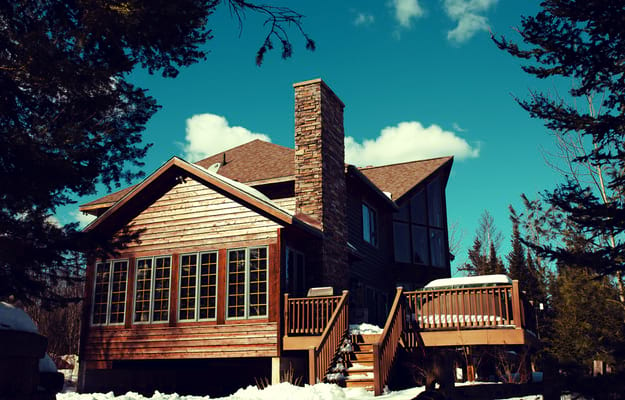Table of Content
And this tax credit doesn’t just include the cost of the product, but also the labor and installation expense. Major home improvements, or capital improvements, increase your home’s value. Capital improvements have to last for more than one year and add value to the base cost of your home, prolong its life or adapt it to new uses.
Well, the Internal Revenue Service may disallow your deductions for the expenses. This often leads to gross income deductions from the IRS before calculating your tax bracket. Deductions for medical related expenses can get a bit complicated.
Let a tax expert do your taxes for you
Let’s take a look at what those exceptions are and what it means for you. You may want to also work with a financial advisor who can help you with all of your tax planning and filing needs as well as help you build your wealth. For example, if you use 20% of your home as an office, you can depreciate 20% of the cost of upgrading your home's heating and air conditioning system. Solar panel installation or upgrading to energy-efficient windows are examples of energy-saving renovations.

However, the base of your home does not include the cost of improvements that were later removed from the home. Home improvements made for home-based business, energy saving purposes, and medical accommodations can be deducted from federal taxes in the same tax year in which you spend them. For example, if you use a bedroom in your home as a home office and you pay a carpenter to install built-in shelving, you can devalue the total cost as a business expense. For example, if you sold your house in 2019, you face a capital gains tax obligation, meaning the federal government expects a cut of the profits made from your home sale based on the amount you received. You can increase the cost basis of your property—and lower your capital gains tax burden—by including additional costs spent on capital improvements to your home.
Deductible Home Improvements
You can make a copy of our free home office expense tracker to help stay on track. Examples of home renovations include new built-in appliances, attic insulation, bedroom additions, and a new security system. Homeowners are encouraged to document all home improvement expenses over the tax year. Internet bills If you’ve been using your home Internet for work-related purposes, you may be eligible to claim a portion of your usage back on tax. By being creative, you may also be able to deduct a portion of the cost of other items in your home, too.

I’ve put together a non-exhaustive list of these home improvements that will qualify for tax credits. Note that these incentives may differ from city to city depending on what your local city government has made available to you. So, you’re finally ready to remodel that unused spare room into a cozy den. With tax season quickly approaching, you may wonder, “Are those home improvements tax deductible? ” It’s possible since certain home improvements are eligible for tax write-offs. Lastly, you can deduct certain home improvements from your income as medical expenses if they are considered medically necessary for you, a spouse, or your dependents.
How do you prove home improvements without receipts?
These include both tax deductions and tax credits for renovations and improvements made to your home either at the time of purchase or after. First point of clarification, most remodeling expenses are not likely to be deductible until you sell your home unless you claim them as some type of expense or capital expenditure for a home based business. If you don’t qualify to deduct home improvements as an expense, another option to look into are tax credits & rebates. Various state and federally funded agencies are incentivizing home owners like you to switch to more eco-friendly home appliances and upgrades.
Alterations made to a home for medical reasons, such as expanding doorways or installing ramps, are often fully deductible. However, the list of rules related to medical renovation deductions is long and ever-changing. John Travis is the founder and owner of the popular blog "Denver Remodel Group". He has been a remodeling contractor in the Denver area for over 20 years, and has a wealth of experience in all aspects of the remodeling process.
You can then include the interest on this amount as a potential mortgage interest deduction if you are itemizing your deductions. That’s because when you sell a home, you may have to pay capital gains tax on the profit. However, many homeowners needn’t worry about that because if you’re a single homeowner, you won’t pay any capital gains tax on the first $250,000 of profit that goes beyond the cost basis . For federally-declared disaster situations, repairs are often deductible in the form of a tax credit. Depending on several criteria related to home improvement, a tax deduction might be claimed all at once in a single tax year, spread out over several years or it may only apply when selling the home. When filing your taxes, a tax deduction reduces your adjusted gross income by the dollar amount of the deduction.

Home improvements for resale value can be tax-deductible when it comes time to sell your home, so it’s crucial to itemize receipts and keep track of where money was spent, including labor costs. For instance, if you made a home improvement in 2016 and sold your house in 2021, any deductions you may be eligible for would be recognized on your 2021 tax return. Our Full Service Guarantee means your tax expert will find every dollar you deserve.
If you’re only learning this now and would like to adjust previous years filings to benefit from this, talk to your CPA. We’ve heard of cases where folks have been able to regain the money they’ve paid towards their capital gains tax. If you’re planning to sell your home and have a substantial capital gain on the home, you may qualify for up to $250,000 of your capital gains as tax exempt; $500,000 if you’re married filing jointly. The most common scenarios include building a wheel-chair ramp, remodeling a bathroom, and installing stair-lifts.

For instance, adding a new front porch to your home would be considered a renovation that adds value to your home. If your existing front porch has some cracks and you repaired them, or your heating and cooling system went out and you replaced it, those were necessary fixes. While you may feel they add value to your home, the IRS won’t see it that way.
Just make sure to research your particular improvements ahead of time. If the whole thing seems confusing to you, it’s never a bad idea to consult a professional. A licensed accountant or tax professional will be able to properly guide you on your home improvement journey.
The folks from LP Design, including their subcontractors were excellent and very pleasant to have in our home. Very accommodating and willing to do anything to make the customer happy. He made this a very positive experience.The finished product looks great and I would definitely use LP Design again and I recommend them to everyone. Riley is a San Francisco-based senior financial analyst and CPA at Google who also runs the personal finance site, Young and the Invested. He and his wife have one child together and all three enjoy exploring the outdoors of Northern California. Previously, he worked for a public utility in New Orleans for six years after graduating from Penn State University with his M.S.
What remodeling costs are tax deductible?
Another upside to using the garage is you'll have the space to add a little half bath for your home office use. If none of the above scenarios apply to your situation, all hope is not lost. You might not be able to write off the home improvement project, but it doesn’t mean you can’t enjoy the fruit of your labor. Whenever you decide to sell your house, you can find a skilled real estate agent in your area to highlight those upgrades to prospective buyers.
The list of qualifying home upgrades changes from year to year, as do the tax dollar amounts involved. Have you ever considered converting your garage or basement into a rental space to earn extra cash? According to the IRS, you can deduct certain expenses if you receive rental income for a dwelling unit. Expenses may include repairs, operating expenses—maintenance and other costs related to keeping it inhabitable—property tax, and mortgage interest. This one-time credit allows you to write off 26% of the cost of any solar, geothermal, wind or fuel cell technology that you are adding to your home, provided that these items are in place by the end of 2020. (If you have not yet filed your 2019 tax return, this credit is 30%).

No comments:
Post a Comment